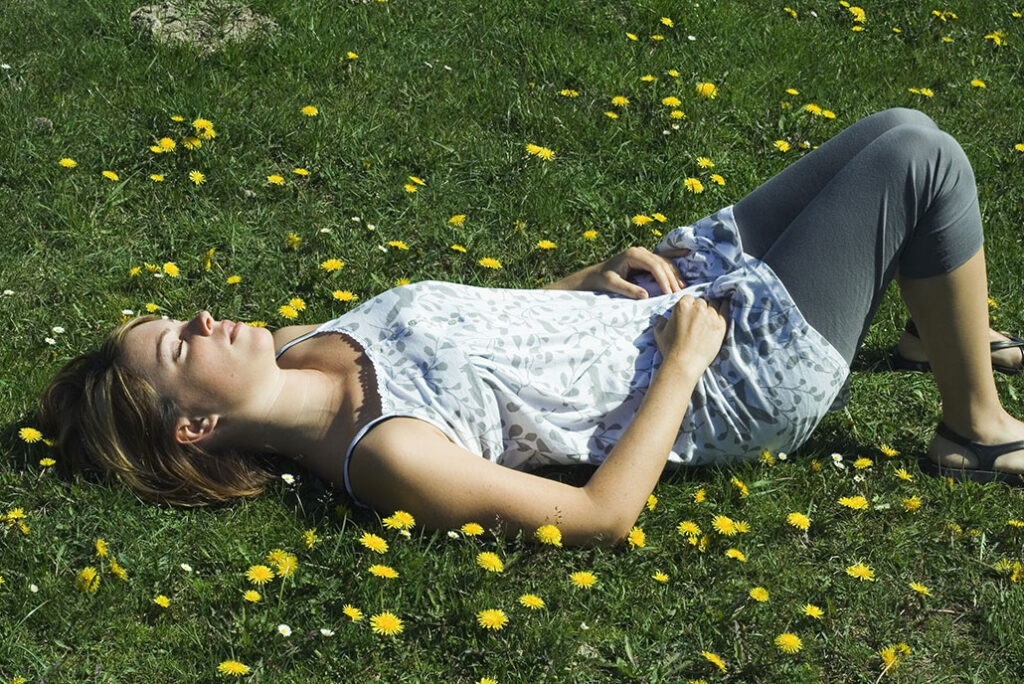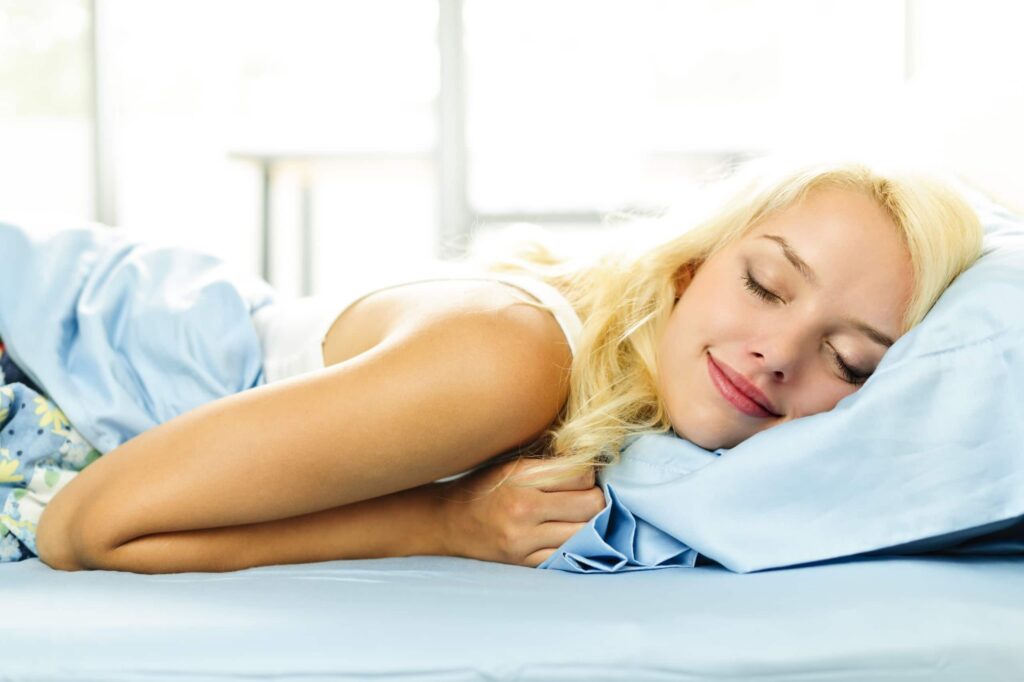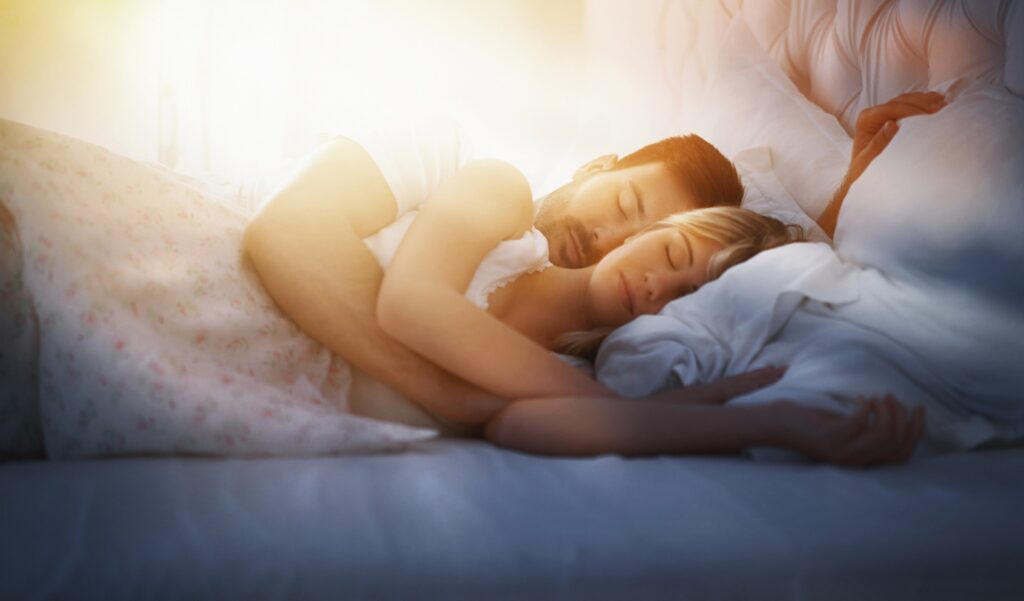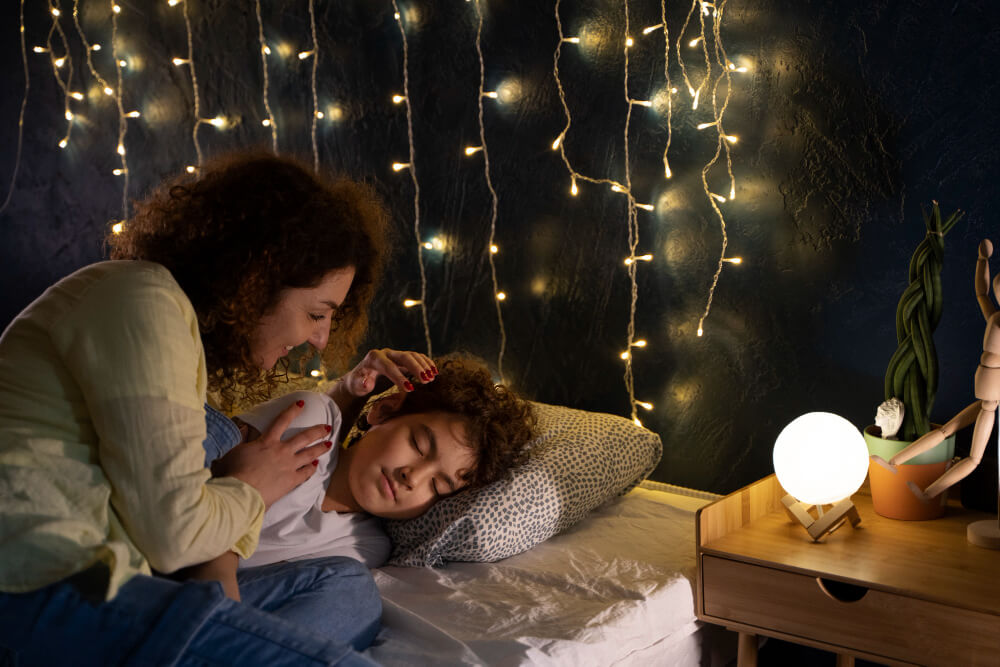
You’ve probably heard of people becoming more tired in the winter. But it’s possible to experience spring fatigue too.
The Biggest Problem Isn’t the Calendar – It’s the Clock.
Daylight Saving Time is the biggest culprit in causing spring fatigue. While most of us adjust within a day or two, others struggle longer. According to a study in the Journal of Clinical Sleep Medicine, adolescents remained tired throughout the entire week following Daylight Saving Time, and their reaction times were slower. Also, a study published in the journal Epidemiology found that car crashes in New Zealand went up 16% the first day after and 12% the second day after the switch to Daylight Saving Time.
Other Sleep Saboteurs of Spring
Daylight Saving Time isn’t the only factor that can cause a spring slowdown in your routine. Here are some other reasons you might feel a bit sleepy when spring hits, and what you can do about them:
Sleep Better with Springtime Sniffles
Allergies are common during the springtime and can prevent you from reaching the deeper, most restorative phases of sleep when you are suffering from their effects. Even if you don’t have allergy problems yourself, your partner might – and their sneezing and sniffling could keep you up at night.
Start by washing your bedding regularly, plus clean or change your air filter frequently to help manage your allergies. If your allergies are causing you to snore and you’re waking up your partner, consider investing in nasal sprays or strips to help you breathe more easily. Keep in mind that snoring can be part of a more serious health issue, so be sure to talk to your doctor first.
Darkness Is Your Friend
You’ll probably want to open your windows to enjoy the fresh spring breezes, but external noise like chirping birds or frustrated, honking commuters can interrupt your sleep.
A cool, dark and quiet room makes the best healthy sleep environment. If outside noise is stopping you from getting enough shut-eye, consider using earplugs or listen to sounds that can actually help you fall asleep, such as pink or white noise.
Don’t Make Exercise Your Enemy
Trying to fit more into your day just because it’s still light outside can also wreak havoc on your sleep. It’s no surprise that the extra daylight hours make us feel optimistic about what we can accomplish. For example, you might go to the gym later than usual and for a longer period of time. This isn’t a good plan, since doing high-intensity activities too close to bedtime can affect the time it takes you to fall asleep.
Try to keep your daily routine as consistent as possible, year-round, for the sake of your sleep. Consider completing your exercise at least 2 hours before bedtime so your body has enough time to rest too.
Check with Your Doctor about Sleep Disorders
Seasonal Affective Disorder (SAD), a type of depression related to the change in seasons, isn’t just a winter condition. Although less common, some people suffer from spring and summer SAD. Symptoms of this include insomnia, poor appetite, weight loss, agitation or anxiety.
If you experience these symptoms for days at a time, see your doctor. You may have an underlying sleep condition that needs to be addressed.
A Final Solution – Give Your Bedroom a Refresh
While you’re following these tips to set yourself up for higher-quality sleep this spring, it can’t hurt to give your bedroom a good spring cleaning too. After all, we do spend one-third of our lives in bed. Soon you’ll be fatigue-free, comfy and catching all of the zzz’s your heart desires.
Spring fatigue can make you feel downright lazy and exhausted. Learn how to fight it so you can sleep well and enjoy the season. #BSCSleepTips @BetterSleepOrgSources:
- https://www.huffpost.com/entry/feeling-sleepy-in-springtime_n_7011894
- https://www.webmd.com/sleep-disorders/features/coping-with-time-changes
- https://www.consumerreports.org/health-wellness/how-to-fend-off-daylight-saving-time-fatigue/
- https://www.mayoclinic.org/diseases-conditions/seasonal-affective-disorder/symptoms-causes/syc-20364651
This blog provides general information about sleep and sleep products. The words and other content provided in this blog, and in any linked materials, are not intended to replace a one-on-one relationship with a qualified heath care professional. This blog should not be construed as medical advice or used to diagnose, treat, prevent or cure any disease or condition. If the reader or any other person has a medical concern, he or she should consult with an appropriately-licensed physician or other health care professional. This blog is not a substitute for professional medical advice, diagnosis or treatment, and should not be relied upon to make decisions about your health or the health of others. Never disregard professional medical advice or delay in seeking it because of something you have read on this blog or elsewhere on bettersleep.org. If you think you may have a medical emergency, immediately call your doctor or dial 911.



